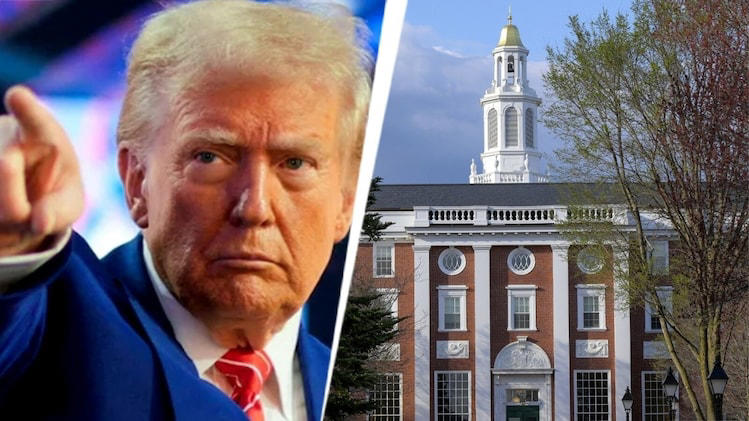Harvard Loses Visa Sponsorship for International Students: 788 Indian Students Face Uncertain Future
Harvard Loses Visa Sponsorship Power: What It Means for 788 Indian Students on Campus
In a stunning development that has sent shockwaves across the international student community, the U.S. Department of Homeland Security (DHS) has revoked Harvard University’s authority to enrol international students under the Student and Exchange Visitor Program (SEVP). This unprecedented move puts nearly 800 Indian students currently enrolled at the prestigious Ivy League institution in a precarious situation, potentially altering their academic and professional trajectories in the United States.
Harvard, long considered a dream destination for students worldwide due to its academic excellence and global reputation, is now unable to issue the crucial I-20 visa documents required for foreign nationals to study in the U.S. The DHS decision, which cites non-compliance with federal requests, directly impacts 788 Indian students who are already on campus and may soon be forced to transfer or leave the country to maintain their legal immigration status.
The revocation is rooted in Harvard’s alleged failure to provide disciplinary records, protest documentation, and footage related to international students involved in campus activism. According to DHS Secretary Kristi Noem, the university is accused of fostering an unsafe environment, including claims of harboring pro-Hamas sympathies and promoting discriminatory diversity, equity, and inclusion policies. These allegations come amid heightened scrutiny of campus protests and a broader push by the Trump administration to dismantle what it describes as ideological extremism within higher education.
Students currently enrolled in multi-year programs, such as master’s, PhD, and postdoctoral research, are particularly at risk. Without a valid SEVP-certified institution to sponsor their visa, these students must urgently secure transfers or risk falling out of legal status—an outcome that could lead to deportation and long-term visa ineligibility. The DHS has made it clear that the revocation will be enforced starting with the 2025–26 academic year, sparing only those set to graduate in the current semester.
Harvard has responded strongly, calling the decision “unlawful and disruptive” to its educational mission. A university spokesperson confirmed that legal action is under consideration and assured that the administration is working quickly to guide and support its international students. The university may be able to regain its SEVP status if it submits the required protest-related records within 72 hours, but such a move would likely be seen as a compromise on its values around student privacy and campus activism.
This clash also highlights a broader conflict between the Trump administration and elite academic institutions like Harvard. Earlier in the year, Harvard refused to implement federal mandates aimed at eliminating diversity initiatives and curbing pro-Palestinian activism. Since then, the university has faced escalating pressure, including the freezing of over $2.6 billion in federal research funding.
The implications extend far beyond Harvard’s gates. Indian students represent one of the largest international student demographics in the United States, and this development could have a chilling effect on U.S.-bound education plans for thousands of Indian aspirants. Many Indian families invest heavily—both financially and emotionally—in sending their children to institutions like Harvard. The uncertainty now surrounding visa sponsorship and academic continuity at such a high-profile university could prompt students to explore alternative destinations like Canada, the UK, or Australia, where visa policies may currently appear more stable.
As legal battles loom and policy debates intensify, the fate of nearly 800 Indian students at Harvard remains uncertain. Their immediate challenge: secure transfers to SEVP-certified institutions or prepare for a return home—both of which come with serious financial, academic, and emotional tolls.
For video news, visit our YouTube channel THE OLIGO.

